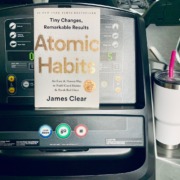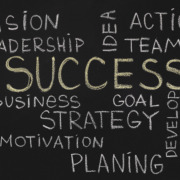Capitalize on Your Successes
 Most readers have heard the inspirational proverb that people attain success when they stand up more times than get knocked down: “fall down seven times, get up eight.” We also often hear that failure is a part of life and we can always try again. This is great advice, but only tells half the story. Why aren’t we advised on what to do when graced by success we strived so hard for?
Most readers have heard the inspirational proverb that people attain success when they stand up more times than get knocked down: “fall down seven times, get up eight.” We also often hear that failure is a part of life and we can always try again. This is great advice, but only tells half the story. Why aren’t we advised on what to do when graced by success we strived so hard for?
What I have observed in my professional world is that peers and colleagues act with more enthusiasm and are inspired to do more, right after achieving a goal or attaining success in some way. An example that comes to mind for me is the level of excitement felt to get started on a project that has been pitched and won as part of sales effort. The success is winning new business, the motivation to do a great job follows directly afterwards.
This effect got me thinking about how best to use success as fuel to do better in a similar fashion to the much-discussed, recommended reaction to failure. If the purpose of failure is to do something different, then the purpose of success is to get the most out of what worked. Here are a few ways to do that…
Set attainable and increasing goals – It’s temping to give yourself lofty goals with the sheer hope of one day achieving them (i.e. I’ll be worth a million dollars by the time I turn 28). There’s nothing wrong with trying to shoot the moon, but with a monthly target you consistently meet, you’ll find small gains turn into huge returns over time
Take pleasure in “small wins” – Sometimes it feels like a victory just to have cleared all the emails out of your in-box on a busy day. Even though that doesn’t necessarily contribute to productivity in the grand scheme of things, taking a moment to enjoy a small victory will grant you a sense of accomplishment. It will keep you on track through your next coffee break
Don’t disregard compliments – I find it so easy to shrug off an “at-a-boy” or “great work” from time to time, chalking them up to common courtesy. But thinking about it, people in the work place don’t usually give out compliments for no reason. You earned and deserve the kudos
Reframe the way you talk to yourself – we need to be subtle in convincing ourselves to do the right thing. Being strategic with our words is one important way to do that. If we tell ourselves we “have” to do something, then it implies we are being forced. It gives us no sense of accomplishment to do something with which we have no choice. Changing the word “have” to “want” will make the whole process of completing that task more pleasant
Suggestions like those above only scratch the surface of how to get the most out of your successes. I am curious what other tips readers would add. Please sent comments to our LinkedIn page.
– Lee Sumner, Sr. Research Manager







